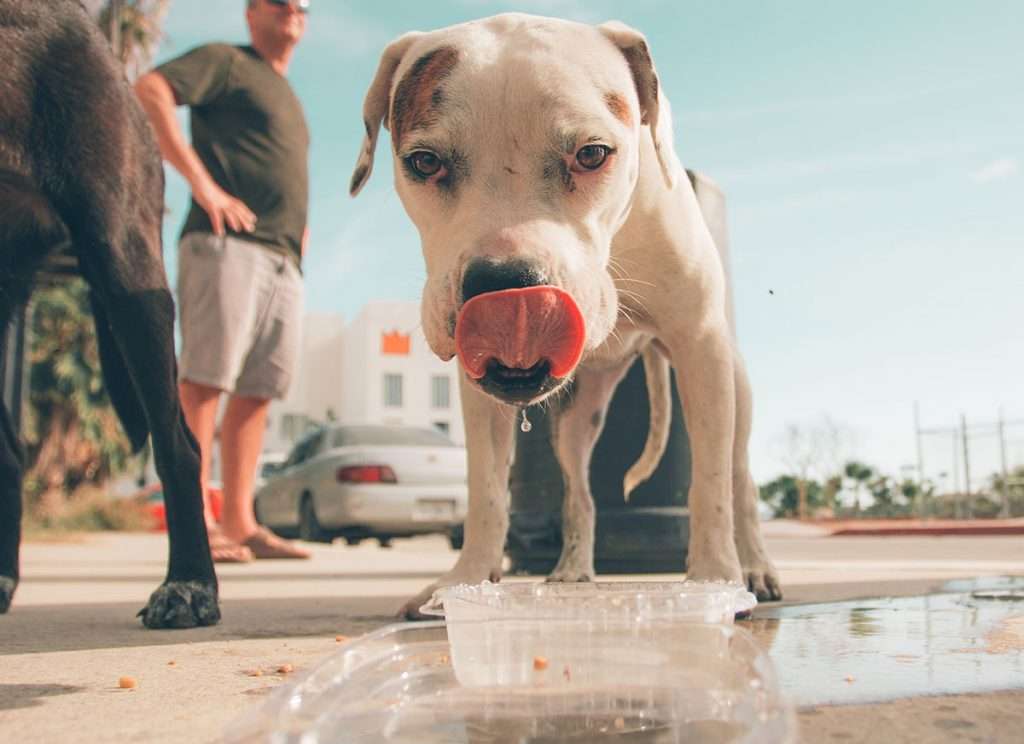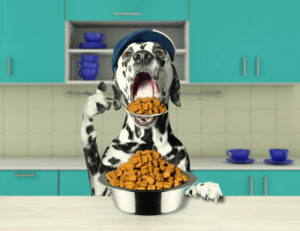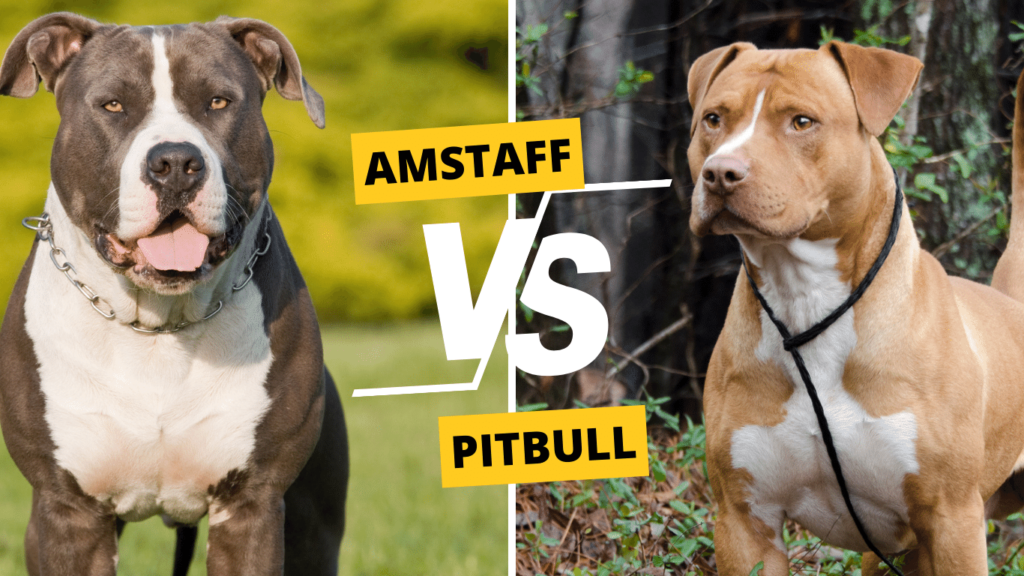
Dog Has Diarrhea But Acts Fine: A Comprehensive Guide
-
 By
Alexander Thornton
By
Alexander Thornton
- Last updated: October 14, 2023

Owning and caring for a dog comes with a lot of responsibilities. While we often highlight and even glorify the positives, such as playing and snuggling with your pet, running around in the great outdoors with them, creating new memories and more, there are also dark sides to pet ownership. This includes dealing with their explosive diarrhea.
Let’s face it, no one enjoys picking up after their pet, especially when it comes to poop and other bodily secretions. However, this comes with the territory and pet ownership in general, so soldier on we must, even with the nitty-gritty of it all and the likes of diarrhea.
Doggy diarrhea is perhaps one of the most common illnesses that your beloved pooch can suffer every so often. At times, they may even have this and still act normally, which is why it can be challenging to know what to do when your dog has diarrhea and is acting fine.
This article will let you in on the different causes of doggie diarrhea, what these can mean, and if these warrant bringing your pet to the vet right away. Read on to know more.
Table of Contents
Different Types Of Diarrhea In Dogs
Diarrhea in dogs is a lot similar to diarrhea in humans. This condition is usually described as having or expelling loose or unformed stools often and in large amounts. While this is not a type of disease, this particular condition is indicative of something more serious, such as other illnesses that your dog may have.
There are different types of diarrhea and, as such, corresponding causes and reasons as well. However, this is typically the result of fast-moving fecal matter through the intestines and the lack of absorption of nutrients, electrolytes, and water in the body.
The most common types of diarrhea include acute and chronic diarrhea, but there are also large-bowel and small-bowel diarrhea, as well as diarrhea with vomiting in the mix.
Acute diarrhea is typically considered the type that appears out of nowhere. This happens all of a sudden and is most likely introduced by something your dog has taken or eaten, especially as this mainly affects your dog’s intestinal tract. Milder cases of acute diarrhea usually go away in a couple of days.
On the other hand, chronic diarrhea is a condition where your dog gets the poops regularly. This means that the diarrhea is more frequent, even with intervention or relief. This is indicative of other illnesses or diseases or even an underlying medical condition that can be wreaking havoc on your dog’s body by making them more dehydrated and leading them to lose weight and appetite over time.
Meanwhile, large-bowel diarrhea is characterized by a number of things, such as your dog straining just to poop, producing small amounts of stool yet with increased frequency, and some blood and mucous mixed in the stool as well.
Small-bowel diarrhea, on the other hand, simply pertains to diarrhea that stems from the small intestine. Unlike its large-bowel counterpart, this is characterized by stools that do not or rarely have blood or mucous in them. Moreover, this type of diarrhea is also fatty and frothy, with dogs not having to strain themselves when pooping. It should be noted that the frequency of defecating is at a normal rate, but larger and goopier stools are to be expected.
Lastly, diarrhea with vomiting is what it seems. This is when diarrhea is accompanied by your dog vomiting and this may be caused by gastroenteritis, or the inflammation of both the upper gastrointestinal tract and the stomach of your dog. Pancreatitis can also trigger this condition
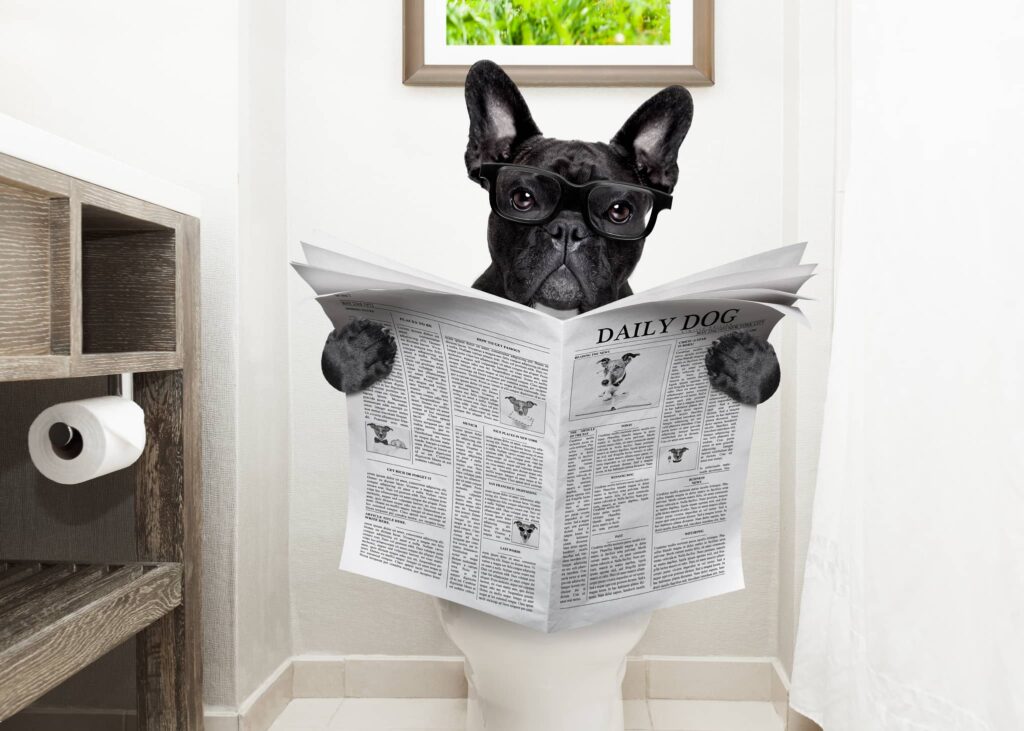
Signs Your Dog Is Suffering From Diarrhea
Diarrhea is always tied to defecating, but these can vary depending on your pooch’s condition and experience. These are some signs you may want to look out for.
Consistency and Color of Stools
One of the most telling signs that say something about your dog’s health and diarrhea is the consistency and color of their stools, so be sure to observe more about your dog’s stools. The perfect poop, as one might say, are those that are shaped like logs. This makes it easier to clean and scoop up as they are compact. These should also have a Play-Doh like consistency and must be a rich chocolatey brown in color.
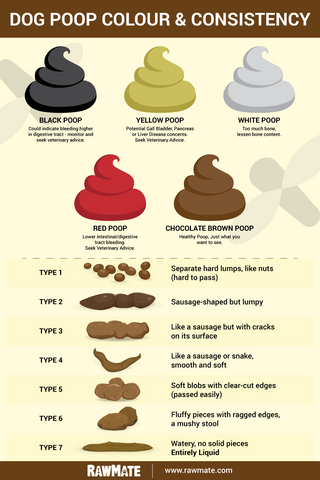
Stools that move from these, including explosive or watery stools, those that have pudding-like consistencies or occur in frequent and larger amounts, may be considered outside the norm. Moreover, blood and mucous in stools are also danger signs.
Dogs that have different-colored stools, such as those having green, gray, black, or even orange colors, may have other health-related concerns or illnesses. These may be indicative of issues within the pancreas, liver, or even internal bleeding. Meanwhile, stools that have white rice-like shapes or objects may mean that your dog has a tapeworm infestation.
Straining Manner and Frequency of Bowel Movements
Dogs often poop at least once a day, although anything between three to five times for normal and healthy adult dogs is still considered within reason. Anything beyond this number might already be a cause of concern.
Straining can be a sign that your dog is having difficulties in passing their stools easily. While this may easily be confused with constipation, particularly with your pupper trying to defecate after the initial start of diarrhea, this can also be a sign of them constantly needing to go even when there is nothing left in their system.
Straining may also be a sign that your dog is only passing a small amount of their diarrhea or stools due to some blockages.
Loss of Appetite and Dehydration
Your dog is not the best at expressing how they feel. As such, you may notice other symptoms that come with their frequent passing of stools. These include vomiting, losing appetite, having little to no energy, as well as dehydration.
As you know, constant pooping or diarrhea can cause severe dehydration in dogs. To avoid this, make sure to give your pup water.
Causes Of Diarrhea In Dogs
Diarrhea in dogs can be caused by different factors. These can come from infections such as parvo or distemper, parasites, bacteria, trauma or wounds in their body, from medication, an existing autoimmune condition, and inflammatory conditions, to name a few. Check out some of these causes below.
Eating Spoiled Food or Consuming Poisonous Substances
There are times when your dog scavenges and scours food in the trash, whether it be inside your home or outside. When this happens, they are most likely to come across spoiled food or garbage and this can contribute to their stomachs being agitated in return.
The same goes for your pup consuming toxic or irritating substances. Toxins or poisons, such as those coming from household cleaning products or even from plants, as well as foreign objects like toys and fabric, may also be a contributing factor as to why your dog is having diarrhea.
Change in Diet
Changing your dog’s diet can also make it a challenging time for their stomachs and digestive system to adapt to new food choices being given to them. Because of this, it is commonly advised for pet owners to slowly introduce new food or brands to get your dog accustomed to new food or proteins.
Stress or Anxiety
Your dog can also experience diarrhea when they undergo stressful or anxiety-inducing situations in life. Whether they are experiencing separation anxiety, from being placed in new places or situations, or hearing loud and surprising noises, there are various factors that can contribute to this.
Infections, Parasites, and Illnesses
Having viral infections such as parvo and or distemper, as well as being exposed or infected by parasites such as roundworms, tapeworms, and whipworms can also put your dog’s digestive system and intestinal tract under the weather.
Dogs who have illnesses such as kidney disease, liver disease, inflammatory bowel disease, or cancer may also be more susceptible to having diarrhea.
Medication
Your dog’s medication or their antibiotics can also make them poop more than usual. If this is a concern, you might want to consult their vet right away.
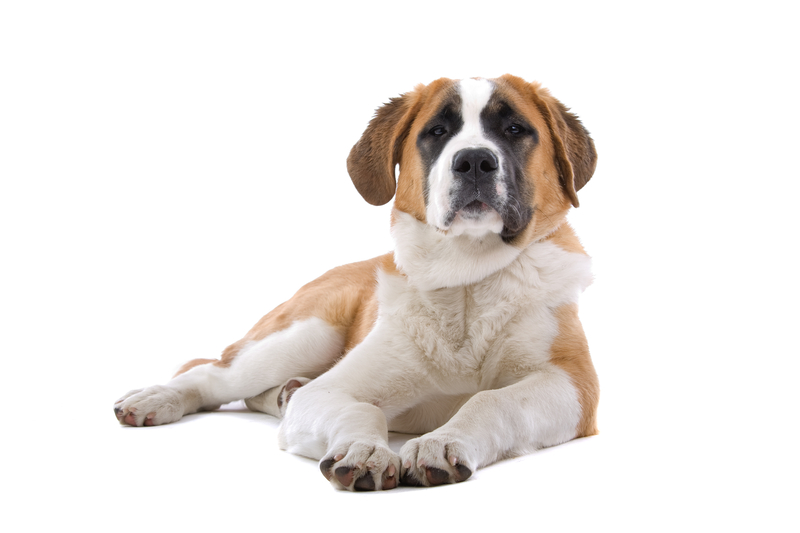
Your Dog Is Acting Normal Even With Diarrhea Problems
If your dog is acting fine and is being their normal self, you may be wondering what you can do about their situation or if there is even a need to act on their diarrhea episodes.
If you are unsure where they stand or if the diarrhea will progress for over a day, you might want to observe the color of your dog’s stools, the frequency of their poops, and the color and the texture of their stools. It is best to remain observant and keen on their actions during this time so you know what other symptoms they could be experiencing.
However, if your pup still remains fine while still exhibiting signs of diarrhea and other causes of concern, such as blood and mucous in their stool, you might want to consult a vet immediately. This way, you can be sure of the prognosis and have your beloved pooch be treated right away.
When To Start Worrying About Your Dog’s Condition
It’s easy to get carried away and be worried about your dog’s condition, especially when they seem to be suffering from diarrhea and still act fine. If, however, their diarrhea continues to persist even after 24 hours, it may be time to worry more about your dog.
Your pup will most likely not be fine if their diarrhea continues. You will see your dog losing appetite, becoming even more lethargic, vomiting, or worse, becoming dehydrated. To prevent their diarrhea from progressing, you should seek out help from your online or local vet straight away.
Learning How To Address And Stop Diarrhea In Dogs
While going to your trusted online or local vet is the first choice, there are a number of home remedies you can do to help ease your dog’s pain and suffering, even if they are acting fine. Although you might be tempted to give them medication, only do so as prescribed or recommended by your vet.
Below are some ways you can help your dog recover from diarrhea and how you can work around their condition.
![]()
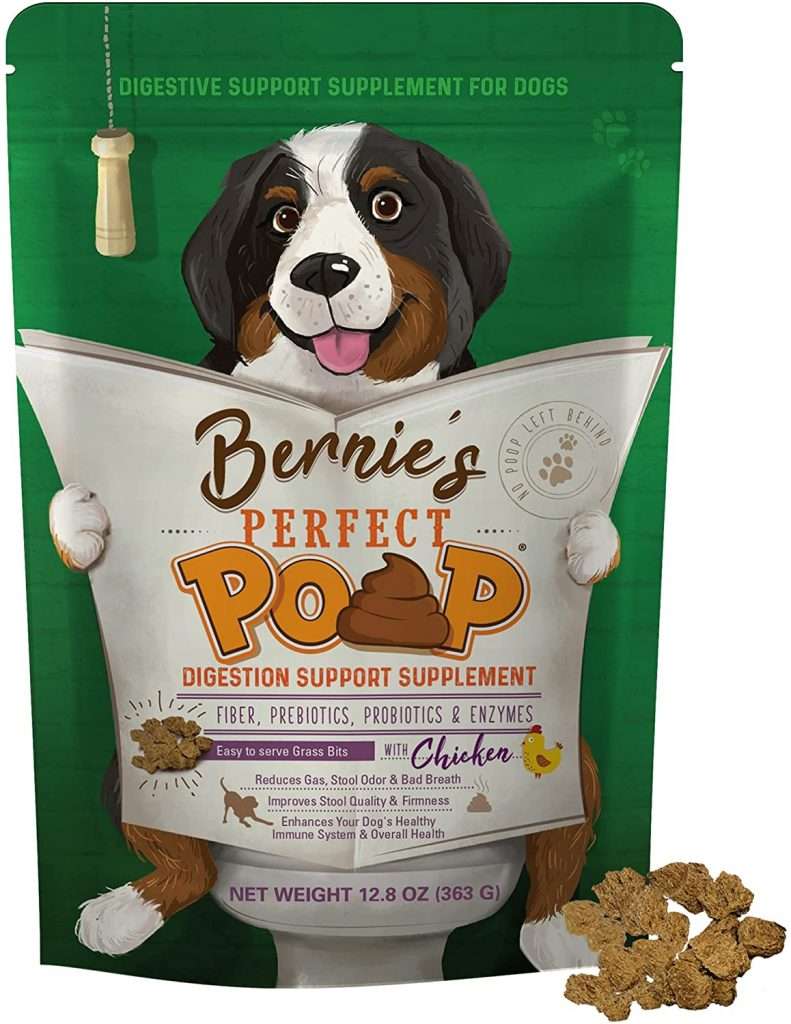
Allow Them to Fast for a Few Hours
While this may seem counterintuitive, allowing your dog to forego their meals for a few hours can do a world of good. Fasting can be done anywhere from 12 to 24 hours. This is a good way to reset your dog’s stomach and for their system to rest and eliminate what they may have ingested. Be sure, however, to constantly give them water to help hydrate them.
Give Your Dog Bland Food
Introduce food again slowly until your pooch regains their energy and appetite. This helps you gauge their level of comfortability when it comes to eating.
While you’re at it, it helps to give your dog bland and soft foods for a day or two. White rice with some boiled chicken can be a good starting point as these are easily digestible. Stay with this diet for a few days until your dog’s stools start firming up before mixing and transitioning to their old diet.
![]()
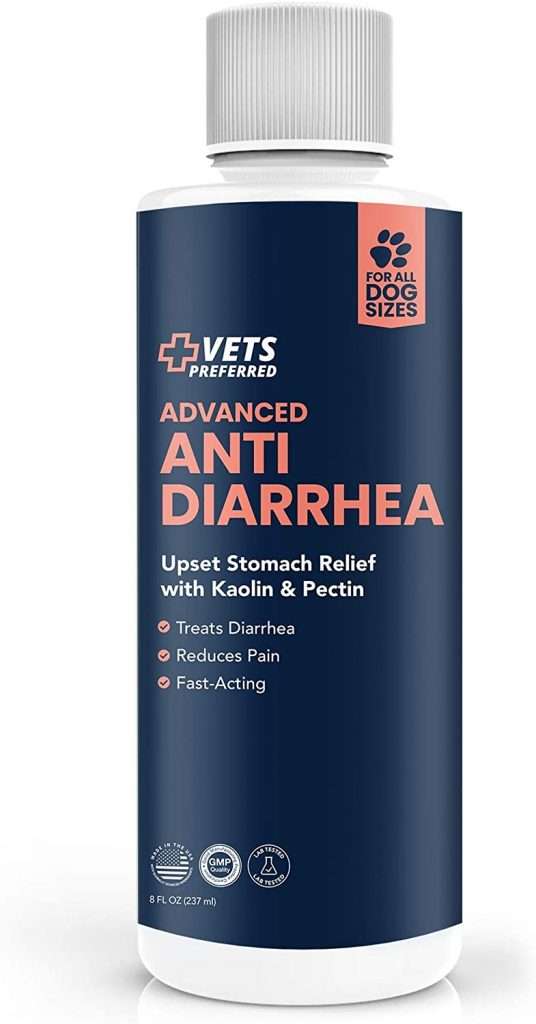
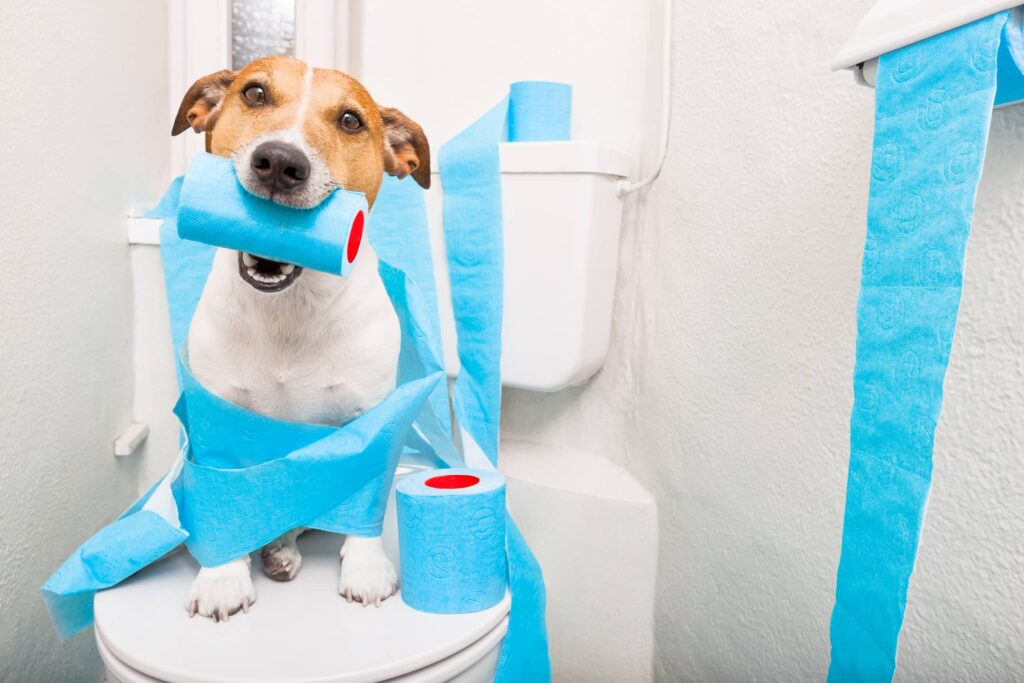
Final Thoughts
Paying attention to our pups’ poop might be unpleasant but it’s a big deal. Even when they’re acting all playful and happy, diarrhea can be a sneaky sign that something’s off. It might be a random bug, something weird they ate, or it could hint at something more serious. Weird colors, blood, or super runny poop are all shout-outs from your dog’s body that we should tune into, giving us the scoop on their internal happenings.
Remember, being proactive is key! Keeping a watchful eye on their bathroom habits and jumping into action when things look off can keep smaller issues from turning into big problems. Whether it’s a one-off upset stomach or something more serious, catching onto these messy signs and chatting with your online or local vet ASAP will help keep your furry friend wagging their tail happily and healthily!
Frequently Asked Questions (FAQ)
Why is my dog having diarrhea but acting normal?
If your dog is experiencing diarrhea but otherwise acting normal, it may be due to a variety of reasons:
Dietary Indiscretion: Dogs sometimes eat things they shouldn’t, like garbage or foreign objects, which can lead to gastrointestinal upset.
Diet Change: Sudden changes in a dog’s diet can disrupt their digestive system and may result in diarrhea.
Food Intolerances: Just like humans, dogs can have intolerances to certain foods that can manifest as diarrhea.
Stress: Dogs can experience stress-induced diarrhea. Stressful situations like moving homes, introducing new pets, or changes in the family can impact their digestive system.
Parasites: Intestinal parasites, like worms, can cause diarrhea even if a dog seems to be acting normal.
Infections: Bacterial, viral, or fungal infections can also lead to diarrhea.
Medications: Sometimes, side effects of certain medications can include diarrhea.
Underlying Medical Conditions: Sometimes, more serious conditions like pancreatitis, liver disease, or inflammatory bowel disease could be a cause.
It’s crucial to monitor your dog closely and consult a veterinarian if the diarrhea persists, if there’s blood in the stool, or if other symptoms develop. Even if your dog is acting fine, ongoing diarrhea can lead to dehydration and other health issues. Always prioritize speaking to a professional when it comes to your pet’s health.
How long is too long for a dog to have diarrhea?
Diarrhea in dogs shouldn’t be taken lightly, especially if it persists. Typically:
Up to 24 hours: If a dog has diarrhea but is otherwise active, eating and drinking normally, and does not appear to be in distress, you might wait up to 24 hours to see if the diarrhea resolves on its own.
24 to 48 hours: If the diarrhea continues for more than 24-48 hours, it’s advisable to consult a veterinarian, especially if the dog is a puppy, a small breed, or has any health conditions that may make them more vulnerable to the effects of dehydration.
Immediate Vet Visit: Immediate veterinary attention is recommended if the diarrhea is accompanied by additional symptoms like vomiting, lethargy, loss of appetite, or if the stools contain blood or are black and tarry. Also, if the dog has any known health issues, or if they are very young or elderly, don’t wait to seek professional advice.
Persistent diarrhea can lead to dehydration, electrolyte imbalances, and other health issues, so always err on the side of caution and consult with a veterinarian when in doubt. Remember that diarrhea could be a symptom of a more serious underlying issue, and identifying the cause is crucial for proper treatment and management.
Why does my dog have diarrhea but no parasite?
If your dog has diarrhea but no parasites, several other factors might be contributing to the gastrointestinal upset. Some of the common non-parasitic causes of diarrhea in dogs include:
Dietary Issues
Dietary Indiscretion: Consuming garbage, spoiled food, or non-food items.
Sudden Diet Change: Rapid changes in food type or brand.
Food Intolerance or Allergy: Sensitivity to certain food ingredients.
Infections
Bacterial Infections: Such as Salmonella or E. coli.
Viral Infections: Like canine parvovirus or coronavirus.
Fungal Infections: Such as histoplasmosis.
Stress and Behavioral Factors
Stress: Changes in the environment, routine, or family.
Anxiety: Separation anxiety or fear of certain situations.
Medical Conditions
Inflammatory Bowel Disease (IBD): Chronic inflammation of the intestines.
Pancreatitis: Inflammation of the pancreas.
Liver Disease: Issues with liver function or bile production.
Gastrointestinal Disorders: Such as ulcers or tumors.
Drug Reactions
Medication Side Effects: Some drugs can cause diarrhea.
Toxin Ingestion: Ingesting toxic substances like certain plants, foods, or chemicals.
Other Causes
Foreign Body Ingestion: Consuming indigestible objects that irritate the digestive tract.
Hyperthyroidism: Though rare in dogs, an overactive thyroid can cause diarrhea.
Miscellaneous
Old Age: Older dogs might have a more sensitive digestive system.
Post-Surgery: Sometimes, diarrhea can occur after undergoing a surgical procedure due to stress or medication.
Always ensure you consult with your online or local veterinarian to determine the exact cause of diarrhea, even in the absence of parasites. Identifying the root cause is pivotal in implementing the correct treatment and managing your dog’s overall health effectively. And remember: continual monitoring of your pet’s health is paramount to noticing any other signs or symptoms that may arise.

Alexander Thornton
About Us
Welcome to doggie site. We stand as the ultimate hub for dedicated dog enthusiasts, combining years of expertise and passion to bring you unparalleled canine insights. Established by a team of canine experts, our platform is rooted in evidence-based practices and a genuine love for dogs, ensuring that you receive the best advice and information.
Latest From Our Blog

